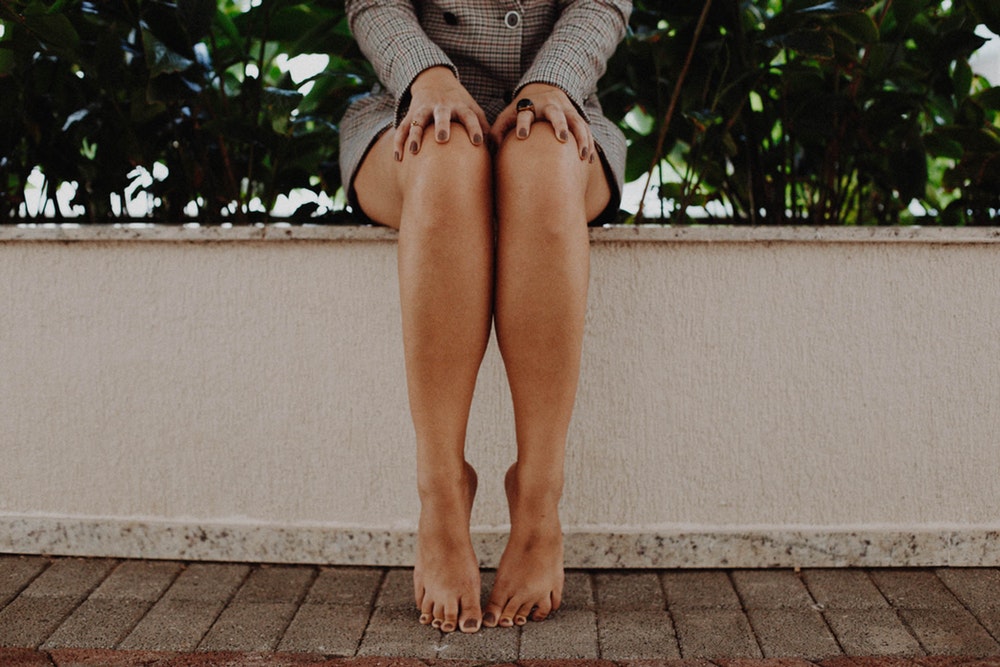Do your feet shrink when you lose weight? When tracking their weight loss, most people focus on their waist. We expect to lose the most fat from our bellies and hips.
But weight loss doesn’t occur in a targeted manner. When you lose weight, you shed fat from everywhere in your body. That’s why sometimes you might experience unexpected body changes such as smaller breasts and a bonier and smaller face.
Another area where you’ll lose some fat is your feet. In some cases, you might have to shop for new shows as you get new clothes to fit your new slimmer body.
But not everybody loses enough fat in their feet to need new shoes. It all depends on your where you lose most weight (all bodies lose weight differently) and how much weight you shed off.
Even if you don’t lose much fat in your feet, they may still appear to shrink.
How Weight Gain Affects Your Feet?

One of the parts of our bodies that takes the most brunt of weight gain is our feet.
When you walk, your feet absorb weight that’s equivalent to 120% of your body weight. It rises to over 200% when running.
So with every kilo of weight gained, your feet have to support more than that with each step. That’s one reason why weight gain often leads to foot problems like plantar fasciitis.
The extra weight forces ligaments, tissue and muscles in your feet to spread out. Weight gain also means more fat in your feet, and can also cause your feet to swell.
All these factors can make your feet appear bigger and can get to a point where you may need to go up a shoe size.
How Weight Loss Changes Your Feet?
Weight loss usually reverses changes that occured to your feet when you gained weight.
You’ll lose some fat from your feet and they’ll shrink though probably not enough for you and others to notice. Unless you’ve lost a lot of weight like 20 or 50 kilos, fat loss from your feet may not be enough on its own to change your shoe size.
What happens for most people who lose weight is that their feet get narrower. This happens when tissue and ligament don’t spread out as much since there’s less pressure on them.
Your foot’s bone structure remains the same, but your foot gets narrower. Instead of going down a shoe size, what’s more likely to happen is that you’ll no longer need to buy wide fit shoes.
Losing weight benefits your feet in other ways, too. You’ll have fewer foot problems and injuries simply because there’s less weight and pressure on your feet.
It can help with issues like flat feet, plantar fasciitis, and achilles tendinitis.
Most people also experience less swelling when they are up and about, which can contribute to your feet appearing and feeling smaller.
How Do You Lose Weight When Your Feet Hurt?

Doctors will often recommend losing weight to mitigate some common foot problems that cause pain, swelling and inflammation.
In addition to tweaking your diet, it’s important to stay active. But that’s easier said than done when your feet hurt or there’s a high risk of injuring your feet.
The good news is that you can still workout even when your feet hurt. But you’ll need to switch to low impact cardio such as rowing, swimming, short walks and elliptical workouts.
It’s also important to work out your muscles. Strength training really helps with weight loss.
As you lose weight and your feet get stronger, you’ll be able to do certain workouts you couldn’t before like running.
Other Causes of Shrinking Feet
If you haven’t lost a bunch of weight but still think your feet are shrinking, there could be a serious underlying health problem.
The most likely cause is nerve damage caused by diabetes or some other illness. Damaged nerves can cause feet to shrink or get deformed.
Your feet can also shrink after pregnancy. One of the effects of pregnancy is that feet get bigger because of the combined effect of hormones and the extra weight from the pregnancy.
Ligaments, tissue and muscles in the feet relax and spread out.
While your feet will never go back to their original size even after childbirth, you may notice some shrinking as the pressure on your feet reduces and you no longer experience swelling.




